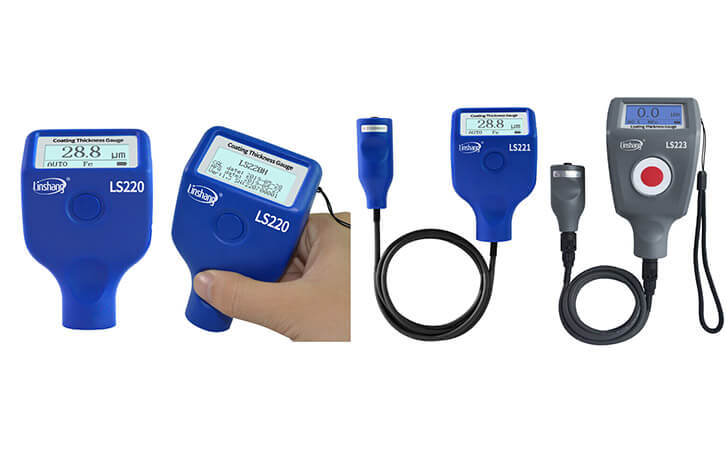Application of Coating Thickness Tester in Heat Insulation Coating Industry
High temperature resistant thermal insulation coatings refer to thermal insulation coatings with a high temperature resistance exceeding 800 degrees Celsius. This kind of heat insulation material will meet the needs of the product under a certain coating thickness, time and temperature. In order to achieve the purpose of heat insulation, the thickness of the heat-resistant coating is particularly important.
The thicker the coating thickness, the better the thermal insulation performance, but too thick a coating will not only increase the cost, but also cause the decline of the product mechanical properties. Therefore, it is necessary to study the relationship between the coating thickness and the thermal insulation performance of the material. We can measure the coating thickness with a coating thickness tester, so that the material maintains a acceptable coating thickness!
1. Relationship between coating thickness and thermal insulation
Epoxy resin is a good coating with high temperature resistance. Its high temperature resistance can exceed 1000 degrees Celsius in a limited time. Under the high temperature of 850 degrees Celsius, the basic properties of the material can be maintained for more than 24 hours. The coating thickness is linearly related to the thermal insulation.
High-temperature heat-resistant insulation coating thickness is a necessary guarantee for heat insulation. It is not that the thicker the coating, the better the heat insulation performance. There are also many disadvantages when the coating is too thick, which not only cause mechanical properties to decline but also cause coatings to crack or even fall off. The degree of thermal insulation for products required by different industries is different, so the thickness requirements of coatings are also different. Therefore, after spraying the coating on the product, be sure to use the coating thickness tester to check whether the product coating thickness meets the standard.
2. Application industry and thermal insulation coating thickness requirements
Insulation coatings are generally used in many scenarios, such as interior decoration, water pipes, refrigerators and so on.The standard thickness of the hot water pipe insulation layer is 6.5-8.5mm, the thickness of the reinforced insulation layer is generally 6-8mm and the thickness of the multi-layer insulation layer is generally 8-9mm. In addition to the above industries, thermal insulation coatings are also widely used in industry, shipping, manufacturing and even military fields, etc. Applications in different industries have different requirements for thermal insulation, so the thickness requirements of coatings are also different. Especially for the cold winter in the north, the thickness of the indoor thermal insulation coating is higher. Not only good insulation effect is required, but also non-toxic, harmless and pollution-free performance are required.
3. Choose the right coating thickness tester
For the measurement of coating thickness, my personal recommendation is to choose Linshang coating thickness tester. Linshang Technology has invented a variety of coating thickness testers to choose from. If it is ordinary insulation coating measurement, it is recommended to use LS220H coating thickness tester . If it is used to detect the thickness of automotive paint film, it is recommended to use LS220B automotive paint meter with Bluetooth. If the measurement space is relatively small and you want to view the measurement data while measuring, it is recommended to use the LS221 coating thickness tester . If your insulation coating is thick, it is recommended that you use the LS223 wide range coating thickness tester .
Among these coating thickness testers, the LS221 and LS223 coating thickness testers are designed separately from the probe and the host. The others are integrated. Users can choose the coating thickness tester that suits them according to their needs. The Linshang coating thickness tester uses the thickness measurement principle of magnetic method and eddy current method. It can measure the thickness of non-magnetic coating on magnetic substrate and the thickness of non-conductive coating on non-magnetic metal substrate.
- High precision coating thickness gauge for used car
- Automotive paint protection films coating thickness gauge
- Plating Thickness Measuring Instrument for Detecting Anti-corrosion Coating
- Linshang LS220, LS191, LS160A– Necessary for Car Cover Inspection
- Coating Thickness Gauge for Second Hand Vehicle
- Zero Adjustment Step of Coating Thickness Gauge
